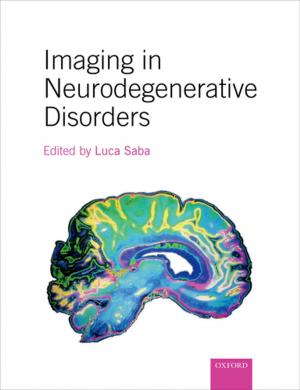Supportive Care in Respiratory Disease
Nonfiction, Health & Well Being, Medical, Specialties, Pulmonary & Thoracic, Patient Care, Terminal Care| Author: | ISBN: | 9780191634062 | |
| Publisher: | OUP Oxford | Publication: | January 26, 2012 |
| Imprint: | OUP Oxford | Language: | English |
| Author: | |
| ISBN: | 9780191634062 |
| Publisher: | OUP Oxford |
| Publication: | January 26, 2012 |
| Imprint: | OUP Oxford |
| Language: | English |
Respiratory symptoms such as breathlessness and cough are common in patients with advancing and incurable disease. For example, cancer, chronic cardiac and pulmonary disease, progressive neuromuscular disorders and degenerative disorders all give rise to varying degrees of respiratory distress which adversely affects the patient's quality of life. In recent years, there has been significant growth into the palliation of respiratory symptoms leading to practical ways of giving relief in hospices, hospitals and at home. The second edition of this popular title in the Supportive Care series includes non-malignant respiratory diseases such as tuberculosis in AIDS patients, cystic fibrosis and ventilator-dependent patients, and focuses on aetiology and diagnosis and management, emphasising symptoms, quality of life and psychosocial support. The underlying theme of the book is the application of modern research-based knowledge, in a humane way, for patients with advancing disease.
Respiratory symptoms such as breathlessness and cough are common in patients with advancing and incurable disease. For example, cancer, chronic cardiac and pulmonary disease, progressive neuromuscular disorders and degenerative disorders all give rise to varying degrees of respiratory distress which adversely affects the patient's quality of life. In recent years, there has been significant growth into the palliation of respiratory symptoms leading to practical ways of giving relief in hospices, hospitals and at home. The second edition of this popular title in the Supportive Care series includes non-malignant respiratory diseases such as tuberculosis in AIDS patients, cystic fibrosis and ventilator-dependent patients, and focuses on aetiology and diagnosis and management, emphasising symptoms, quality of life and psychosocial support. The underlying theme of the book is the application of modern research-based knowledge, in a humane way, for patients with advancing disease.















